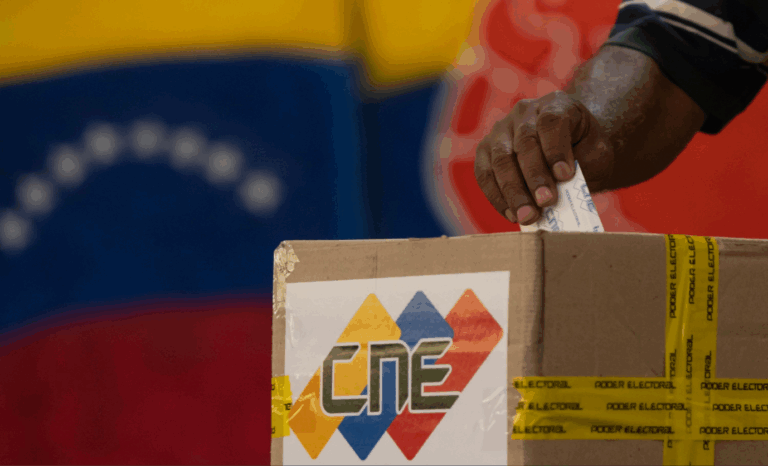People’s Power in Venezuela: 25 Years of Participatory Democracy

May 24, 2025 Hour: 11:04 am
On May 25, 2025, Venezuela will hold a pivotal electoral process, further consolidating its status as a benchmark for participatory democracy.
Citizens will elect 285 National Assembly deputies, 260 state legislators, and 24 governors, including, for the first time, a governor for Guayana Esequiba, a defiant assertion of sovereignty over territory illegally claimed by Guyana.
This election marks a revolutionary expansion of Venezuelan democracy, exemplified by the inclusion of a new electoral circuit of 21,000 voters in Bolívar state, representing historically marginalized sectors.
These elections mark more than 30 events since 1998, a record that shames so-called “advanced democracies” where voter apathy and corporate financing dominate.
Each election has been a battle, against coup attempts (2002, 2017, 2019), economic warfare (illegal sanctions blocking ballot materials), and media distortions. Yet, the automated voting system, with its 15-stage audit process and biometric verification, has ensured every vote counts.
Even opposition figures like Henrique Capriles admitted in 2013: “The technical guarantees exist; what we question is the National Electoral Council’s partiality.” A hollow complaint, given that the CNE’s board includes opposition-nominated members.
A Democracy Forged in Resistance
Hugo Chávez’s 1998 victory (56.2% of the vote) sparked a constitutional revolution.

The 1999 Constituent Assembly, elected with 87.75% support, was no elite-led convention. Over 50,000 grassroots assemblies were held nationwide, where farmers, workers, and indigenous communities drafted proposals.
The resulting Constitution, approved by 71.78% in December 1999, didn’t just tweak institutions; it dismantled the neoliberal state, mandating: Free healthcare/education; Land reform; Communal self-governance.
This charter became a weapon. When the oligarchy staged the 2002 coup, it was the people, organized in barrios and backed by loyal soldiers, who restored Chávez in 48 hours.
In their infancy, the communes proved vital, mobilizing food distribution and communications networks under siege.
The Machinery of People’s Power
Venezuela’s electoral system is a technological shield against imperialism. Unlike the U.S.’s vulnerable electronic voting, Venezuela’s system:
- Prints paper ballots for every digital vote (100% verifiable).
- Uses triple-encrypted transmission
- Allows 54% of audits to be conducted by opposition parties.
The 2024 presidential election (51.2% for Maduro) showcased this robustness. Despite a cyberattack on the CNE’s servers, results were transmitted within hours.
Communes: Where Democracy Lives
The 2024 Popular Consultations highlighted socialism’s impact: Barinas farmers allocated 70% of resources to irrigation, while Petare urban communes prioritized wheelchair-accessible clinics.
Of 30,712 projects submitted nationwide: 6,153 targeted water access (e.g., repairing drought-hit pipelines); 4,892 focused on housing (communal construction brigades); 3,409 upgraded schools with solar panels.
Popular consultations will be maintained for the selection of communal projects, and as the revolutionary process has demonstrated, these projects have not only begun but are advancing steadily, once again consolidating the work of the communes in their territories.
The Road Ahead: 2025 and more
The May 25 elections will inform the 2025-2031 Socialist Plan, which aims to have 50% of public spending managed by communes by 2030 and mandates that 30% of candidates be under 35.
As Venezuela faces renewed sanctions, these elections represent a historic crossroads: Will sovereignty or dollarized elites rule? History suggests the answer.
On May 25th, voters will decide not only on candidates but also on Chavez’s revolutionary vision.
Author: Silvana Solano
Source: teleSUR


